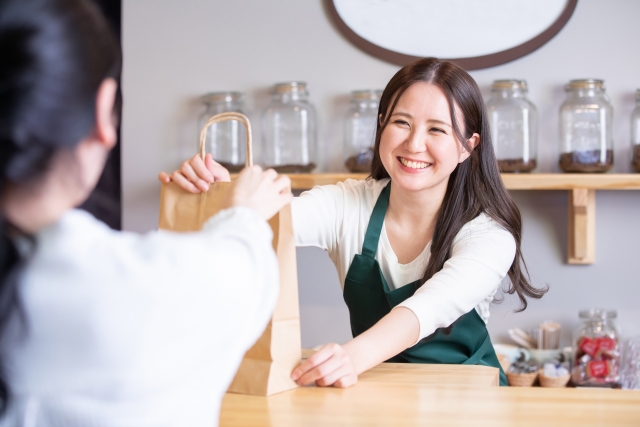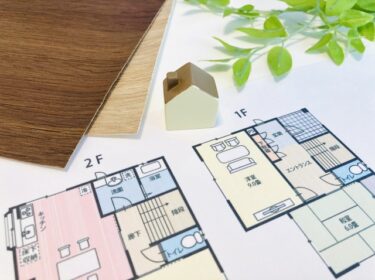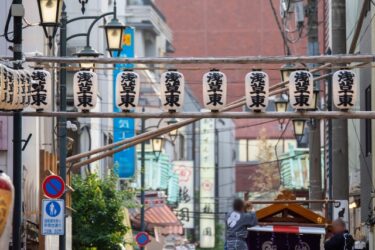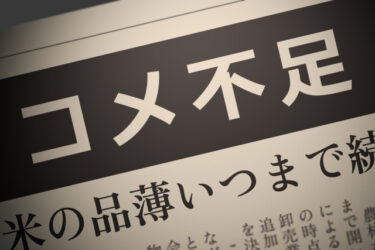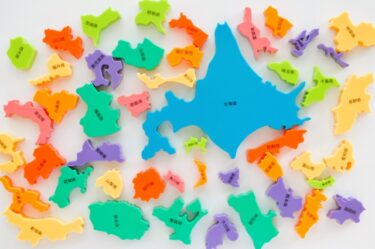Living in Japan means you’ll often find yourself in everyday situations where a bit of Japanese can go a long way. Whether you’re ordering food, asking for directions, or just making small talk, these phrases will help you navigate daily life with more confidence. Below, you’ll find useful Japanese expressions along with their English translations, organized by common scenarios. Practice these and you’ll feel more comfortable communicating in typical day-to-day situations in Japan.
The audio on this site is provided by Ondoku.
- 1 When withdrawing money
- 1.8 8. In Daily Social Situations
- 1.9 9. In the Elevator (エレベーター)
- 1.9.1 When asking if someone is going up or down
- 1.9.2 When asking someone to press a button for you
- 1.9.3 When holding the door for someone
- 1.9.4 When thanking someone for holding the door
- 1.9.5 When apologizing for taking up space or being in the way
- 1.9.6 When arriving at your floor and letting others know
1. At a Convenience Store (コンビニ)
When paying at the cashier
Japanese: 「袋にお入れしますか?」(Fukuro ni oire shimasuka?)
Would you like a bag?
Japanese: 「袋は大丈夫です。」(Fukuro wa daijobu desu)
No bag, thank you.
When buying hot food items
Japanese: 「温めますか?」(Atatame masuka?)
Would you like this heated up?
Japanese: 「はい、お願いします。」
Yes, please.
When using a convenience store bathroom
Japanese: 「トイレをお借りできますか?」(Toire wo okari dekimasuka?)
2. At a Restaurant
When asking for a table
Japanese:「2名です。」(Nimei desu)
A table for two,please.
When ordering
Japanese: 「これをください。」(Kore wo kudasai)
I’ll have this, please.
When asking for the check
Japanese: 「お会計お願いします。」(Okaikei wo onegai shimasu)
Check, please.
When needing something
Japanese: 「お水をいただけますか?」(Omizu wo itadake masuka)
Could I have some water, please?
3. At the Post Office (郵便局)
When sending a letter or package
Japanese: 「これを送りたいです。」(Kore wo okuritai desu)
I’d like to send this, please.
When asking for a delivery method
Japanese:「一番安い方法でお願いします:(Ichiban yasui houhoude onegai simasu)
When confirming delivery time
Japanese: 「いつ届きますか?」(itsu todoki masuka)
When will it arrive?
4. On Public Transportation
When asking if a seat is available
Japanese: 「ここ、空いてますか?」(Koko aite imasuka)
Is this seat available?
When asking for directions
Japanese: 「〇〇駅にはどうやって行けばいいですか?」〇〇eki niha douyatte ikeba iidesuka
e.g.東京駅にはどうやって行けばいいですか?(Tokyo eki niha douyatte ikeba iidesuka)
How do I get to Tokyo station?
How do I get to [station name]?
When exiting the bus/train
Japanese: 「次は〇〇駅ですか?」(Tsugiha 〇〇eki desuka)
e.g.次は秋葉原駅ですか?(Tsugiha akihabara-eki desuka)
Is the next stop Akihabara station?
5. At a Supermarket (スーパー)
When asking where a product is
Japanese: 「〇〇はどこにありますか?」
e.g.ヨーグルトはどこにありますか?(Yoguruto wa dokoni arimasuka)
Where can I find yogurt?
Where can I find [item name]?
When confirming an item’s price
Japanese: 「これはいくらですか?」(Korewa ikura desuka)
How much is this?
When asking about payment options
Japanese: 「クレジットカードは使えますか?」(kuewjitto kado wa tukaemasuka)
Can I use a credit card?
6. At the Doctor’s Office (病院)
When explaining symptoms
Japanese: 「頭が痛いです。」(Atamaga itai desu)
I have a headache.
When making an appointment
Japanese: 「予約をしたいのですが。」(Yoyaku wo shitai nodesuga)
I’d like to make an appointment.
When asking about medication
Japanese: 「薬はどうやって飲めばいいですか?」(Kusuriha douyatte nomeba iidesuka)
How should I take this medicine?
7. At the Bank (銀行)
When opening an account
Japanese: 「口座を開きたいです。」(Kouza wo hirakitai desu)
I’d like to open an account.
When withdrawing money
Japanese: 「お金を引き出したいです。」(Okane wo hikidasi taidesu)
I’d like to withdraw money.
When asking about a bank card
Japanese: 「キャッシュカードはいつもらえますか?」(Kyassyu ka-do wa itsu moraemasuka)
When will I receive my bank card?
8. In Daily Social Situations
When greeting a neighbor
Japanese: 「こんにちは。」(Konnichiwa)
Hello.
When apologizing for an inconvenience
Japanese: 「ご迷惑をおかけしてすみません。」(Gomeiwakuwo okakeshite sumimasen)
I’m sorry for the inconvenience.
When asking for help
Japanese: 「すみませんが、手伝っていただけますか?」(Sumimasenga tetsudatte itadakemasuka)
Excuse me, could you help me?
9. In the Elevator (エレベーター)
When asking if someone is going up or down
Japanese: 「上(うえ)に行きますか?」/「下(した)に行きますか?」(Ueni ikimasuka/ Shitani ikimasuka)
Are you going up?/ Are you going down?
When asking someone to press a button for you
Japanese: 「〇〇階(かい)のボタンを押していただけますか?」(〇〇kai no botan wo oshite itadakemasuka)
e.g.6階のボタンを押していただけますか?(Rokkai no botan wo oshite itadakemasuka)
Could you press the button for the [floor number], please?
When holding the door for someone
Japanese: 「どうぞ、お先に。」(Douzo osakini)
Please, go ahead.
When thanking someone for holding the door
Japanese: 「ありがとうございます。」(Arigato gozaimasu)
Thank you.
When apologizing for taking up space or being in the way
Japanese: 「すみません、失礼します。」(Sumimasen shitsurei shimasu)
Excuse me, sorry for the inconvenience.
When arriving at your floor and letting others know
Japanese: 「ここで降ります。」(Kokode orimasu)
English: “I’m getting off here.”
These examples cover a wide range of common situations that foreigners in Japan may encounter in daily life. Including both Japanese and English versions ensures that users understand both the phrases they need and what they might hear from others.

